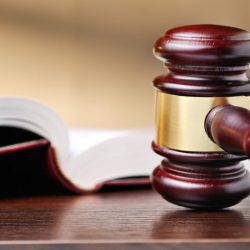The Supreme Court explained how the police made a mistake by conducting a search before the arrest
The legality of the search prior to the entry of information into the EDPR depends on whether the detention was lawful.

The legality of the search prior to the entry of information into the EDPR depends on whether the detention was lawful.

In view of the small percentage of use of the "Electronic Court" by state bodies, a logical question arises: will citizens who apply or plan to apply to the court for the protection of their cases have confidence in this method

The person applied for the replacement of the party of the debt collector in the writ of execution, issued to fulfill the court's verdict in the part of the settlement of the civil lawsuit. The application was submitted as part of a crimi

The lawyer of a natural person-entrepreneur appealed to the court with a complaint about the actions of the state executor regarding the use of the property valuation report, but the decision of the court of first instance did not satisfy her, an

The erroneous calculation by the appellate court of the term for appealing an absent decision from the time of drafting its full text, and not from the moment of completion of the special procedure for appealing such a decision to the court that


In order to prevent information leakage, People's Deputy Denys Maslov registered the project "On Amendments to the Law "On Access to Court Decisions".

From the point of view of regulatory regulation, it is unjustified that the Ministry of Justice of Ukraine does not hold a competition for the position of director of the Coordination Center for the provision of legal assistance.

The newly discovered circumstance is not the fact of the adoption of a court decision, not this decision itself as a legal fact, but the circumstance established by the court in it.

As a result of the discussion of all proposals and the analysis of the situation, a decision was made to reorganize the Committee for the Protection of Professional Rights of Lawyers and Guarantees of Advocacy into two Committees.

On February 10, 2022, the Bar Council of the Kyiv Region adopted a decision by 12 votes "in favor" to postpone "the holding of the Meeting of Lawyers from the Election of Delegates to the Report-Election Conference of L

Systemic interpretation of procedural norms gives grounds for the conclusion that the execution of a decision on permission to search a person's home or other possessions is entrusted to the investigator or prosecutor and cannot be entrus

Securing a claim by suspending the effect of a normative legal act must fully comply with the provisions of Part 1 of Art. 6 of the Basic Law of Ukraine, which establish that state power in Ukraine is exercised on the basis of its division into l

The introduced quarantine restrictions, together with the peculiarities of labor activity, may indicate the presence of objective, significant difficulties for the timely submission of an application for acceptance of inheritance.

The results of such checks, assigned as part of the investigation of criminal proceedings on the basis of the decision of the investigating judge, are inadmissible evidence and in accordance with Part 2 of Art. 86 of the Code of Criminal Procedur

The ECtHR did not assess whether the lawyer's confidentiality was actually violated in the case, but pointed to the vagueness of Estonian national legislation on the protection of lawyer's confidentiality and the lack of appropria

On February 8, representatives of the Ukrainian Bar Association discussed their development strategy online. It was presented by Volodymyr Vikhlyaev.

This commentary will largely be devoted to the anti-topic – how to avoid using your social networks to protect other people's rights and interests in court.

The Higher School of Advocacy held an event on professional development, at which the lecturer was Asya Tarasova, a lawyer, a member of the Higher Qualification and Disciplinary Commission of the Bar, a member of the Committee on Advocacy Ethics

A set of conditions is necessary for the court to make a decision to release the accused from criminal responsibility in connection with the reconciliation of the guilty party with the victim.
